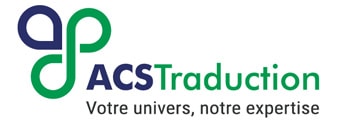Wanting to save and cut expenses on everything that isn’t strictly necessary is totally normal in business management. Keen to reduce expenses, having an internal bilingual colleague translate professional documents, rather than paying a professional translation agency, can be quite tempting to business managers. The idea can be very appealing: why bother with a translation agency when we have the means to do it internally?
A false economy
This is not an effective long-term solution, and can potentially be very risky.
- Firstly, you should consider the potential cost of having badly translated documents, such as technical documents, employee contracts, provider and client contracts, product manuals, website translation or sales and marketing documents. At best, you risk tarnishing the company’s brand. Worst case scenario, you can end up having legal trouble. If you run into any problems, it will cost a lot more than the money you will have saved by not contacting a professional translation agency.
- In the words of John Ruskin, a visionary of the 19th century, which are just as important today. Il a déclaré : “It is not wise to pay too much, but even less so to pay too little”. If you pay too much, you lose a bit of money – that’s it. But, if you pay too little, you may lose everything, because the thing that you spent your money on is defective and unable to be used for the purpose it was bought. The common rule in the business world is that it is impossible to pay very little and get a lot.
- An unqualified translator will not be able to provide you with high quality professional translations. By choosing your bilingual colleague instead of a professional translation agency comes back to the idea of being unaware of expertise, cultural sensitivities, brand consistency and the time it will take for your colleague to eventually reach an acceptable level of translation.
The main reasons
Expertise
Being able to speak a language doesn’t mean that the person is able to translate. A professional translator is able to convey the author’s original message (source message) in a manner that suits the target audience. This requires in-depth knowledge of the target language and culture, as well specific knowledge of the particular sector. This is especially important in legal, technical, and professional translation. Professional translators will have completed a diploma in specialised translation, which will allow them to pick up on the subtleties in their specific field. Professional translators will also have the advantage of specialised tools that help them with terminology – for example, translation memories – and other referencing tools such as technical bilingual dictionaries.
A translation is more than just a simple juxtaposition of words from one language to another.
Your bilingual colleague may naturally rely on literal translations. These are very rarely correct because they don’t acknowledge context and cultural nuances. Translators must correctly interpret the message into the target language by taking all of these nuances into account.
Syntactic differences
There are also various grammar rules, and they vary from one language to another. For example, the capitalisation of proper nouns in English, a rule that does not exist in many other languages. Idioms also do not translate literally. The literal translation of the Japanese idiom “nodo karat te ga deru” is “I am out of my throat”, which means absolutely nothing in English. In fact this means that you really want something.
The advantages of professional translation
When a professional translator works with marketing documents, they will know how to provide the target audience with the exact intended message which will be expertly chosen to suit their cultural norms.
Knowledge on technical jargon
Technical jargon has been evolving over the years therefore, translators must be up-to-date with new terminology. In the digital sector, a lot of new words are appearing: Today you will hear a lot about the “cloud” (internet services) and of “machine learning” (a form of AI based of algorithms and statistic models). In the marketing sector, a translator must be aware of many digital terms, such as “bounce rates” as well as the more traditional “buyer persona”, for example.
Therefore in order to produce a successful translation, translators must undergo specialised linguistic training, as well as having technical knowledge.
Time is money
Finally, the time factor. Your inexperienced bilingual colleague will take much longer to produce an acceptable professional translation than a professional translation agency would. In a time where accessing the market is more critical than ever, growing businesses cannot risk being held back by bad decisions and false economies.
A professional translator will also be able to tell you exactly what they require from you, to give you a time estimate, and provide you with high quality work on time. This means that you will be able to plan campaigns or business projects, all the while knowing that you can get started without any delays.
If you would like advice or simply to discuss you translation needs, all of our team here at ACSTraduction is at your disposal.




